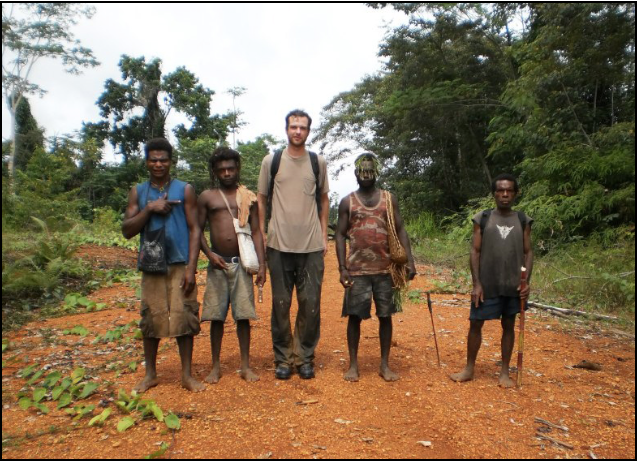TSERI doctoral researcher heads to Papua New Guinea

June 27, 2014 | posted by The Institute
Source: By Deborah Silliman Wolfe/College of Engineering
Meet Jason Roberts. This environmental anthropology doctoral student who works with Texas Sustainable Energy Research Institute will be traveling over 8,000 miles as he takes his studies to Papua New Guinea for 14 months, starting August 2014.
“I am going to Papua New Guinea (PNG) to conduct research for my doctoral dissertation,” said Roberts. “My dissertation is on the social and environmental effects of, and responses to, industrial logging in subsistence horticultural communities on New Hanover Island, PNG.”
For the past year, Roberts has been working on social analyses of residential energy consumption patterns among San Antonio households in order to better determine ways to promote energy efficiency with Dr. Afamia Elnakat, associate professor of research at the Texas Sustainable Energy Research Institute (TSERI), and Dr. Juan Gomez, deputy director and an associate professor of research at TESRI.
“It is a pleasure working with Jason,” said Elnakat. “He has been a great team member highlighting the anthropological language of our science and engineering models. We wish him the best.”
Though Roberts says he really has enjoyed his time at the institute, he is excited to continue his personal research and is looking forward to reconnecting with the people he met during a period of pilot research he conducted in PNG in 2012.
“I met many great people the last time I was in PNG, and I was adopted into a clan during my stay in Pinikara Village on New Hanover Island,” said Roberts. “I owe these individuals quite a lot for my success. Unfortunately, communication has been quite difficult while I have been away.”
Roberts says he will spend the majority of his time on New Hanover Island. And in addition to better understanding the local effects and responses to large-scale logging in subsistence communities therein, he also will attempt to learn as much as he can about Lavongai culture and the Tungak language.
“This project will constitute one of the very few long-term anthropological studies of Tungak speakers living on New Hanover Island,” said Roberts. “Overall, I am also looking forward to being able to see this project through. It has been sort of a long time coming.”









